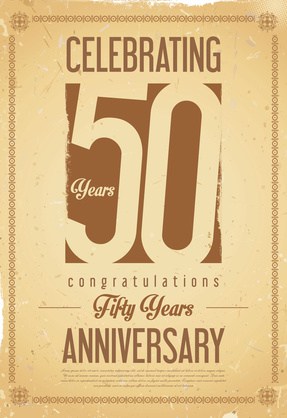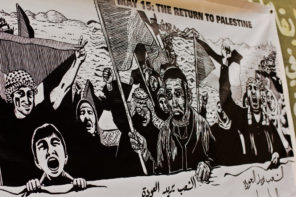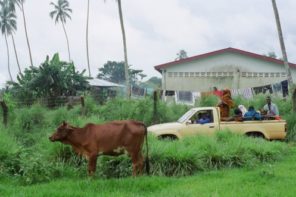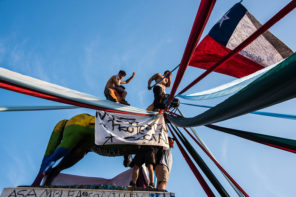This Allegra week we focus on a theme that we have addressed numerous times earlier: human rights. This repeated attention is not entirely coincidental as the theme features centrally in the research of both of Allegra’s founders, namely Miia Halme-Tuomisaari and Julie Billaud. Our focus has also a more timely reason: this week – March 23, to be exact – marks the 40th anniversary of the date when one of the UN’s most important human rights covenants entered into force, namely the International Covenant on Civil and Political Rights (ICCPR).
The year 2016 can further be seen to commemorate the 50th anniversary of the ‘International Bill of Rights’ constituted of the Universal Declaration of Human Rights (UDHR), the ICCPR and the International Covenant on Economic, Social and Cultural Rights (ICESCR). The ICESCR was, together with the ICCPR, adopted and opened up for state signatures in 1966, and both covenants entered into force a decade later after a sufficient number of states had ratified them.
Do such dates matter for anthropologists studying human rights – and if they do, how and why? We wish to argue that they do, and connect answers to a metaphor that we are rather fond of: the laboratory.
An anniversary embodies a useful ‘lab experiment’ for studying the affective qualities that people invest in diverse things/values/phenomena, an element that in the anthropology of human rights has so far been given less attention than research focusing on techno-rationalities, truth-production techniques or such materialities as ‘indicators’.
Simultaneously anniversaries form a distinct genre within UN work: its calendar is filled with dates with varying degrees of importance – be it the International Day of Happiness – which was celebrated for the fourth time yesterday, on March 20 – or the International Year of Human Rights Learning to mention just a few examples. 2015 has also marked the 70th anniversary of the UN as a whole.
The ‘anniversary genre’ and its significance are, of course, well known to insiders of UN human rights bureaucracies and come with well-known strategic connotations. Consequently joining such celebrations offers a particular shared opportunity for reflection and debate with insiders of the human rights field.
In regards to the ICCPR, the ICESCR and the UN Office for the High Commissioner for Human Rights the strategic goals accompanying this anniversary are evident – and easily discussed also by UN insiders themselves. To elaborate this statement, brief introduction into the UN human rights monitoring framework is helpful.
The ICCPR and the ICESCR are both monitored, like most of the other principal UN human rights treaties, by expert committees also known as treaty bodies whose members are international human rights experts, and thus importantly, instead of state interests, they represent – or are supposed to represent – solely human rights concerns instead of state interests in their work. In the absence of an international human rights court with universal jurisdiction operating under the UN, treaty bodies are the highest authoritative bodies to monitor how states comply with the obligations that they undertake while becoming parties to human rights treaties.
However, despite of having been in existence for decades, the treaty body system is both little known outside the UN and its impact on the ‘real’ world raises regular doubts. In recent years, the treaty body system has been significantly overshadowed in visibility by the newcomer of UN monitoring mechanisms: the Universal Periodic Review by the Human Rights Council. The fundamental difference between these two monitoring systems is that treaty bodies are based on contractual obligations and thus ‘legal’ – even if the exact relationship of treaty body work and ‘the law’ is a significantly complex matter.
The UPR, by contrast, is thoroughly ‘political’, even if human rights treaty obligations and the work of treaty bodies are frequently highlighted in them. The treaty body system as a whole is currently under review via a process known as ‘treaty body strengthening’, with influential voices supporting its unification – a plan starkly opposed by others as it is seen to diminish the bite of this monitoring mechanism. A large internal review on the matter is scheduled for 2020, and with the remodelling of the UN Human Rights Commission into the Council it would not be surprising to see significant changes in the composition of treaty bodies as well – even if their modification would be more complicated to execute due to the covenant-bound nature of their mandates.
Thus, from the viewpoint of engaged UN personnel at the Human Rights Committee and the CESCR Committee the 50th anniversary arrives at an important moment. Its visibility may provide important backing for arguments warding off possible future budget cuts, or vice versa, highlighting the need of increasing funds.
Consequently the anniversary – as well as the participation of the anthropologist in it – may assist in serving distinct strategic goals within these Committees. And course, it would not hurt the work of the engaged anthropologist either: the more important and visible these UN Committees are seen, the more influential will also research on them become – yet another reminder of how meshed all anthropological analyses are with their targets of investigation.
These observations link up further with a much larger tension that characterizes historical research into the origins of human rights. Also this issue has been highlighted earlier at Allegra via the thematic week on the history of human rights around the book entitled Revisiting the Origins of Human Rights co-edited by Pamela Slotte and Miia Halme-Tuomisaari.
The book, particularly its introduction, analysed how the history of human rights has customarily been told via ‘the textbook narrative of origins’. More specifically, this narrative embodies a distinct unilinear tale of progress which casts the eventual triumph of human rights as the only possible course that history could take. Almost miraculously the textbook narrative of origins has remained intact for decades in ‘mainstream’ scholarship, acquiring almost mythical qualities. Today, so this book argues, this narrative holds important functions in legitimizing the power of the contemporary human rights regime.
The debate of ‘what really happened’ will likely remain active for quite a while still. Focussing on an anniversary will hold undoubted significance also here: it offers a moment of reflection, a time for revisiting existing archival sources and to gather more details on ‘what really happened’ via the gathering of oral histories.
Yet, despite of all of these analytical layers and self-conscious detached analysis, perhaps most importantly an anniversary is just that: a moment for remembering and celebrating the enormous global phenomenon that has formed around the ideology and discourse of human rights over the past decades. Going back to the very core of the human rights ideology and discourse, these sentiments appear as both natural and extraordinary. After all, there is no denying that the ideology of human rights is a highly pleasing one due to its core message, which intends to pursue only good things to all mankind – freedom and the equal worth of all as paramount of those.
On the other hand, over the past decades, via the overwhelming popularity that this ideology has come to enjoy, this ideology has also been thoroughly bureaucratized, legalized – tamed even. One may even question whether their triumph has commenced to contribute to their failure – as we have recently witnessed for example Lori Allen argue in her book The Rise and Fall of Human Rights: Cynicism and Politics in Occupied Palestine. And yet there is no denying that the sense of genuine belief is also continually well and alive – and this, given how routinised or bureaucratic many of the documentary genres around human rights may appear today, is nothing short of amazing.
These considerations form the wider framework for this week’s posts which discuss simultaneously the current phase of scholarship around human rights. We set things off tomorrow via a glance into the current stage of the anthropology of human rights via a videoed exchanged by Miia Halme-Tuomisaari and Mark Goodale from the open seminar held at the Graduate Institute Geneva on March 2, 2016, as a part of the Program for the Study of International Governance. The debate focuses in particular on what has been happening in anthropology of human rights since the pivotal issue of the American Anthropologist in 2006, namely ‘Anthropology and Human Rights in a New Key’, glances at the 1940s and considers where we might be heading in the future.
On Wednesday we pay closer attention to just what kind of works have appeared under the rubric via the review on Jennifer Curtis’ book ‘Human Rights as War by other means’. On Thursday we continue by sharing glimpses into exciting work to come as we revisit the workshop report on the forthcoming book ‘Palaces of Hope: Anthropology of International Organizations’, edited by Ronald Niezen and Maria Sapignoli. On Friday we conclude this week with another events post, this time themed, of course, around human rights.
To make sure that this week receives a flying start, below we have added a bibliography of recent anthropological works on human rights, along with links to a few more expansive bibliographies including human rights law and the history of human rights.
Once again, a warm welcome aboard & we hope you enjoy our spread of posts!
Bibliography (aka some relevant recent works)
Allen, Lori
2013 The Rise and Fall of Human Rights Cynicism and Politics in Occupied Palestine. http://oclc-marc.ebrary.com/Doc?id=10692201, accessed September 22, 2013.
Billaud, Julie
2014 ’Keepers of the “Truth”: Producing “Transparent” Documents for the Universal Periodic Review. In Assessing the Universal Periodic Review: Rights, Ritual, Ritualism. Cambridge: Cambridge University Press.
Bornstein, Erica, and Peter Redfield
2011 Forces of Compassion: Humanitarianism Between Ethics and Politics. Erica Bornstein and Peter Redfield, eds. SAR Press.
Bornstein, Erica, and Aradhana Sharma
2016 The Righteous and the Rightful: The Technomoral Politics of NGOs, Social Movements, and the State in India. American Ethnologist 43(1): 76–90.
Cowan, Jane
2013 Before Audit Culture: Towards a Genealogy of International Oversight of Rights. In The Gloss of Harmony: The Politics of Policy Making in Multilateral Organisations. Birgit Muller, ed. Pluto Press.
Cowan, Jane K.
2006 Culture and Rights after Culture and Rights. American Anthropologist 108(1): 9–24.
Douzinas, Costas
2000 The End of Human Rights: Critical Legal Thought at the Turn of the Century. Hart Publishing.
Fassin, Didier, and Mariella Pandolfi, eds.
2010 Contemporary States of Emergency: The Politics of Military and Humanitarian Interventions. Zone Books.
Godoy, Angelina Snodgrass
2013 Of Medicines and Markets Intellectual Property and Human Rights in the Free Trade Era. Stanford Studies in Human Rights. Stanford University Press.
Goodale, Mark
2009 Surrendering to Utopia An Anthropology of Human Rights. Stanford Studies in Human Rights. Stanford University Press.
, ed.
2012 Human Rights at the Crossroads. Oxford University Press, USA.
Goodale, Mark, and Sally Engle Merry, eds.
2007 The Practice of Human Rights: Tracking Law Between the Global and the Local. Cambridge ; New York: Cambridge University Press.
Halme-Tuomisaari, Miia
2013 ‘Contested Representation: Exploring China’s State Report,’ Journal of Legal Anthropology 1/2013 No. 3, 333-359.
Halme, Miia
2010 Human Rights in Action: Learning Expert Knowledge. Erik Castrén Institute Research Series in International Law, Ed. Martti Koskenniemi. Brill Academic Publishers, Leiden,
Hopgood, Stephen
2013 The Endtimes of Human Rights.
Kelly, Tobias. This Side of Silence: Human Rights, Torture, and the Recognition of Cruelty. University of Pennsylvania Press, 2011.
Merry, Sally; Engle, Kevin E Davis, and Benedict Kingsbury, eds.
2015 The Quiet Power of Indicators: Measuring Governance, Corruption, and Rule of Law. Cambridge University Press.
Mosse, David, ed.
2011 Adventures in Aidland: The Anthropology of Professionals in International Development. Berghahn Books.
Müller, Birgit
2013 The Gloss of Harmony: The Politics of Policy Making in Multilateral Organisations. London: PlutoPress.
Riles, Annelise
2006 Anthropology, Human Rights, and Legal Knowledge: Culture in the Iron Cage.’. American Anthropologist 108(1): 52–65.
Rosenblatt, Adam
2015 Digging for the Disappeared: Forensic Science after Atrocity. Stanford University Press.
Rottenburg, Richard
2009 Far-fetched Facts a Parable of Development Aid. Cambridge, Mass.: MIT Press. http://site.ebrary.com/id/10290031, accessed September 16, 2013.
Sanchez, Shakira Bedoya
2015 My Name Is Not “NN”: Fieldnotes from an Exhumation Site in a Guatemalan City. Allegra Lab: Anthropology, Law, Art, World. https://allegralaboratory.net/my-name-is-not-nn-field-notes-from-an-exhumation-site-in-guatemala-city/.
Slotte, Pamela & Halme-Tuomisaari, Miia:
2015 Revisiting the Origins of Human Rights. Cambridge University Press, Cambridge,
Zizek, Slavoj
2005 Against Human Rights. New Left Review 34(July-August).
More (Allegra) bibliographies on human rights
Recent publications in Human Rights
During 2016 year Miia Halme-Tuomisaari is focussing on the 50th anniversary of the ‘Bill of Rights’ via a series of events as a Visiting Senior Fellow of the Program for the Study of International Governance of the Geneva Graduate Institute of International and Development Studies. On January 6 she hosted a session at the Institute’s Winter Seminar, talking of the significance of 2016 with Simon Walker of the UN OHCHR, and on March 23 she will host a session with Andrew Clapham and Nigel Rodley to commemorate the ICCPR. The project also includes an online platform that will be updated throughout 2016 with the idea of capturing the ‘institutional memory’ of the two Covenants and their monitoring Committees, and eventually form an open access repository for future research.











